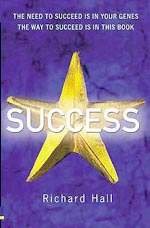Do you have what it takes to be a successful entrepreneur?
Ask yourself the following questions:
Are you a self-starter ?
Are you a leader ?
Do you take responsibility for your own actions ?
Are you organized ?
Are you a decision maker ?
Are you determined ?
Are you financially responsible ?
Do you have management skills ?
Does your family support your decision ?
Are you trustworthy ?
Are you open to opportunity ?
Are you willing to learn ?
Are you able to move outside your comfort zone ?
Do you work well with other people ?
Were you able to answer "YES" to the majority of these questions?
If so, it is time to start planning for your entrepreneurial success.
Two noted educators and authors have offered a profile for today's entrepreneur.
Rita Gunther McGrath, associate professor at Columbia University Graduate School of Business, and Ian MacMillan, the Fred Sullivan Professor of Entrepreneurship at the Wharton School of Business, University of Pennsylvania, are authors of The Entrepreneurial Mindset: Strategies for Continuously Creating Opportunity in an Age of Uncertainty. Using the term "habitual entrepreneur," they suggest five common characteristics :
Entrepreneurs are ...
passionately seek out new opportunities
pursue opportunities with enormous discipline
pursue only the very best opportunities and avoid exhausting themselves and their organizations by chasing after every option
focus on execution -- specifically, adaptive execution
engage the energies of everyone in their domain
Do you see a bit of yourself in their description?
Sometimes it's best to assess our own spirit by evaluating the energy that drove earlier entrepreneurs, those who have already traveled the path we now find ourselves on.
Sam Walton (1919-1992), founder of one of the fastest-growing and most profitable retail establishments (Wal-Mart) and wholesale organizations (Sam's Club) once said, "I probably have traveled and walked into more variety stores than anybody in America. I am just trying to get ideas, any kind of ideas that will help our company. Most of us don't invent ideas. We take the best ideas from someone else."
Ten years after Walton's death, entrepreneurs still try to emulate the man who learned from the world around him -- and turned those lessons into profit. We can learn a lot from our predecessors. They have blazed trails that we as new entrepreneurs have yet to discover. Sometimes it is best to move forward by looking backward.
What stores have you walked into to learn from others?
It is smart, however, as we walk others' paths and allow our spirits to soar to recognize our limitations. We cannot all be Bill Gates, Oprah Winfrey, or even Edward Lowe.
Edward Lowe invented cat litter in 1945, making the feline one of the most popular house pets in America. More important, in 1985 Lowe created the Edward Lowe Foundation, a resource center dedicated to helping entrepreneurs and small business owners through educational programs, information services, research tools, and other support services.
"The real roots of economic growth in the United States came about through the ingenious efforts of the entrepreneurial-spirited individuals and their small, independent companies, rather than through the giant companies," said Lowe. "We must give credit to the mountain of men of the past -- from them came the grassroots of American greatness."
Let's not forget the lessons to be learned from Andrew Carnegie, P.T. Barnum, Mary Kay Ash, Ben and Jerry, and others. When you feel as though you are stuck and are not moving forward with your business idea, stop. Look back. Allow the innovation of others who came before you to inspire you for the future.
Do you possess the same entrepreneurial spirit that made these individuals successful?
Where will you begin?
With a business plan. Enjoy this learning and growing process and watch your ideas mature and evolve with your plan.
Subscribe to:
Post Comments (Atom)










































































































No comments:
Post a Comment